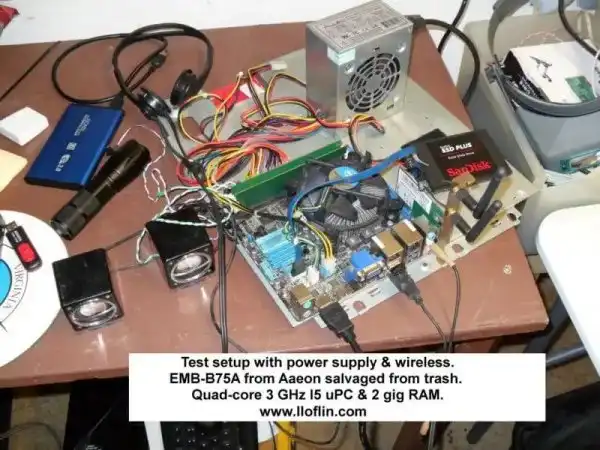Introduction
I’ve been passionate about electronics since 1970, starting with vacuum tubes and building projects like a plasma discharge tube for a 1977 science fair. Over the decades, I’ve designed and built circuits for hobbyists and students, taught electricity at a community college, and explored applied science through hands-on projects like Geiger counters. I believe science should be practical and evidence-based, not speculative—climate patterns are mostly natural, nature is resilient, and human ingenuity can be a force for good. This page is for hobbyists and home scientists, sharing my projects, videos, and resources to help you build and repurpose electronics at home.
Building Electronics at Home
As a hobbyist, I’ve built countless circuits, from motor controls to microcontroller projects, focusing on applied science—real-world solutions, not theoretical models. One of my favorite projects is an H-Bridge motor control, a circuit that lets you control a motor’s direction, useful for robotics or automation. Below are some demonstrations of my work, shared on my X account, showing how accessible these projects can be for home scientists.
Motor speed control demo.https://t.co/0iyuMiLESI pic.twitter.com/CRVO8N4r87
— Lewis Loflin (@Lewis90068157) November 23, 2023
Stepper motor demo for unipolar motor.https://t.co/0iyuMiLESI pic.twitter.com/tKK7vMJ6q7
— Lewis Loflin (@Lewis90068157) November 23, 2023
Live demo of external circuits controlled from PC printer with my interface board. pic.twitter.com/gRCzqC1bvC
— Lewis Loflin (@Lewis90068157) November 23, 2023
I’ve also worked with microcontrollers like the PIC series from Microchip, often used in devices like microwave control panels. These single-chip systems are perfect for hobbyists—compact, affordable, and versatile. Below is an example of a PIC microcontroller on a carrier board, programmed in assembly for precise control.

My teaching experience at a community college showed me how hands-on projects, like building a Geiger counter to measure radiation, can inspire learning. These projects aren’t just educational—they’re fun and practical, letting you explore applied science at home.
Repurposing Computers for Hobbyists
I’m a master scrounger, proud to have repaired, salvaged, and repurposed thousands of consumer products, circuit boards, and computer gear over the years. Repurposing older computers—what I call “upcycling”—is a great way for hobbyists to learn, save money, and reduce e-waste. For example, I’ve used a 20-year-old Compaq Presario to stream audio, do word processing, and even operate a CNC machine. Below is a test setup for an EMB-75B motherboard, showing how older systems can be brought back to life.

EMB-75B mother board test setup.
Click for larger image.
Older computers can be turned into super microcontrollers, running lightweight Linux versions like Openbox or JWM. You can learn programming—Python, C/C++, bash scripting—or connect them to hardware via printer ports. Below is a video showing how to reuse surplus PC power supplies, which provide high currents at 12V, 3.3V, and 5V, perfect for powering projects.
Repurposing isn’t just practical—it’s sustainable. As I learned from gardening experiments, where “green” methods often reduced yields, speculative ideals don’t always work. In electronics, buying the latest gadgets isn’t necessary when older systems, often free or cheap, can do the job while keeping e-waste out of landfills.
Resources for Hobbyists and Home Scientists
I’ve compiled a variety of resources to help you dive into electronics and technology at home. My YouTube Channel has 252 videos, including tutorials on motor control, Linux setups, and more. My website, Electronics Hobby Projects, offers detailed guides for beginners and advanced hobbyists alike. Below are some curated categories to get you started.
Electronics Tutorials and Projects
- Issues on Connecting MOSFETs in Parallel
- Solar Panel Battery Charge Controller Switching Circuit
- Design 10-Amp 2N3055 Based Power Switch
- H-Bridge Motor Control with Power MOSFETS
- Comparator Theory Circuits Tutorial
- ULN2003A Darlington Transistor Array with Circuit Examples
- Transistor-Zener Diode Regulator Circuits
Microcontroller Projects
- Arduino Microcontroller Projects
- PIC12F683 Microcontroller Projects
- Microchip PIC16F84A H-Bridge Motor Control
- Microchip PIC16F628A Basic H-Bridge Motor Control
Repurposing and Linux Projects
- Main Light Fast Linux Desktops with Openbox, JWM
- Test Reuse Surplus PC Power Supplies
- Add WBAR Launch Dock to Raspberry Pi
- Add MPG123 Terminal Music Player to Raspberry Pi, Linux
- Live Linux Distro for Using Printer Port with Electronics
- Using the Powerful Rox-Filer System in Linux
Additional Videos and Tools
Below are more videos showcasing practical tools and projects, like using PuTTY for terminal access on Linux or Windows, which I’ve found invaluable for remote control of my systems.
PuTTY terminal program for Linux, Windows
Conclusion
Electronics and technology projects at home are a fantastic way for hobbyists and home scientists to learn, create, and contribute to sustainability. Whether you’re building circuits like an H-Bridge motor control or repurposing an old computer to run Linux, the focus should be on practical, evidence-based solutions. My journey—from vacuum tubes to modern microcontrollers—shows how applied science can empower anyone to explore technology. Just as I learned from gardening that practical tools outperform speculative “green” methods, hobbyists succeed by focusing on what works. Dive into these projects, and let’s build a community of hands-on learners!
Related Topics
While my focus here is on electronics and technology, I’ve explored related topics that might interest you, from nuclear science to critiques of eco-ideology.
